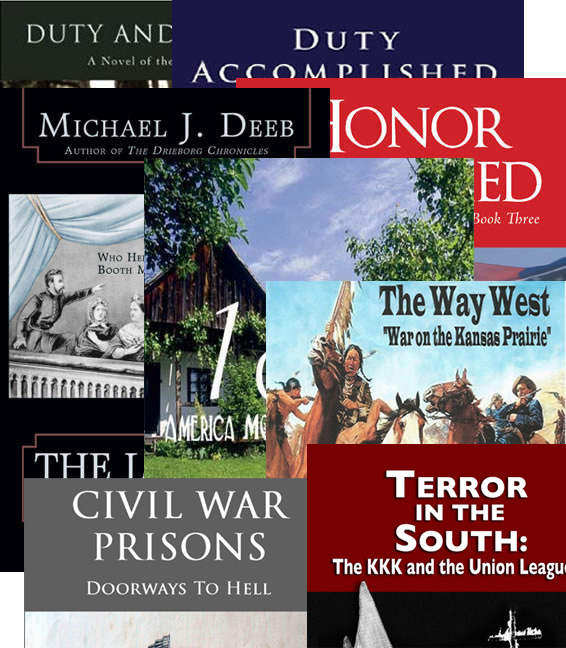The Road to Emancipation
The Road to Emancipation
At the Outset of the War:
From the outset of the war in April of 1861, Lincoln insisted his government’s only war aim was to re-unite the country. It was not, he insisted very publicly, to abolish slavery. He said:
“My paramount object in this struggle is to save the Union and is not to either save or destroy slavery. If I could save the Union without freeing any slaves, I would do it;, if I could save the Union by freeing all the slaves, I would do its; If I could save it by freeing some and leaving others alone, I would do it. “
Congressional View
Republicans in Congress thought otherwise .In 1862,
a. Thaddeus Stevens urged Lincoln to declare total war and make emancipation a war aim
b. March 1862, Congress forbade the army to return slaves to their masters.
c. April of 1862, Congress outlawed slavery in the District of Columbia June of 1862, Congress outlawed slavery in the western territories.
d. July 1862 Congress passed the 2nd Confiscation Act with provisions to free slaves of rebels.
Lincoln’s Response
Then, Lincoln backed a plan that would have compensated an owner in the Boarder States for each slave freed. He then intended to return the freed slaves to Africa. He pursued this policy because he feared inciting rebellion in the Boarder States and a negative reaction from Union soldiers who had joined the fight to save the Union, not free slaves.
But, by the end of 1861 he knew this initiative had failed. Slave owners in the Boarder States had not warmed to his purchase proposal, black leaders in the North opposed it too, and congressional leaders did not support it. His idea of shipping freed slaves back to Africa was not practical nor did it receive much support either. The issued of contraband slaves need to be addressed. And he was under great pressure from Congress and the press to do something about emancipation.
So, by mid summer of 1862, he then decided to issue an executive order freeing all slaves in states not controlled by the Union. This would make abolition a second war aim.
But he listened to Secretary of State Seward’s warning not to issue such an order out of weakness. Seward urged him to wait for a Union military victory to do so. Thus, he would issue the Emancipation Proclamation following the Union 1862 September military victory at Antietam Creek in Sharpsburg, MY.
A Second War Aim Jan. 1, 1863
Thus, President Lincoln announced a second war aim, that is an executive order ending slavery in the entire nation.
The Union won a victory at Antietam. om Se[ 17. 1862. Five days later, September 22nd, Lincoln issued the Preliminary Emancipation Proclamation. The final proclamation was issued on January 1, 1863. He said he used his power as Commander-in-Chief of the Army and Navy “as a necessary war measure” as the basis of the proclamation. He wrote to one of his generals,
“After the commencement of hostilities, I struggled nearly a year and a half to get along without touching the “institution”; and when finally I conditionally determined to touch it, I gave a hundred days notice of my purpose, to all the States and people, within which time they could have turned it wholly aside, by simply again becoming good citizens of the United States. They chose to disregard it, and i made the peremptory proclamation on what appeared to me to be a military necessity. And being made, it must stand.”
The text of the Emancipation Proclamation read:
“That on the first day of January in year of our Lord, one thousand eight hundred and sixty-three, all persons held as slaves within any State, or designated part of a State, the people whereof shall then be in rebellion against the United States shall be then, thenceforward, and forever free: and the executive government of the United States, including the military and naval authority thereof, will recognize and maintain the freedom of such persons, and will do no acts or acts to repress such persons, or any of them, in any efforts they may make for the actual freedom.”
Lincoln’s executive order was never challenged in court. If effected slaves in ten states of the Confederacy. It did not effect slaves held in Maryland, Delaware, Arkansas, Missouri and Kentucky. Tennessee was mostly occupied by the Union and West Virginia was almost a state. So, it did not effect slaves held in those areas, either. Of the 4 million slaves, some 500,00 in the Boarder States were not freed. But some 20,000 were immediately freed in areas of North Carolina and the Barrier Islands of Georgia and South Carolina.
Another 300,000 slaves were not freed in Union controlled New Orleans and 13 Louisiana parishes. But the Proclamation did cleared up the issue of ‘contraband’ slaves, some 100,000; they were henceforth free.
As she Union armies advanced, the Proclamation provided the legal framework for freeing all slaves in the conquered areas. And, as seceding states rejoined the Union, it was required that thei new constitution of that state include the abolition of slavery.
Reaction
Many in the military initially found the Proclamation troubling; some even resigned their commission. But, by and large most soldiers recognized that taking away the South’s labor force hurt the Confederate economy and could very well hasten the end of the civil war.
Internationally, the Proclamation was warmly greeted. Some think it could have prevented help given the CSA from England and thus other European countries.
The obvious problem of what to do with 4 million former slaves after the conflict had ended was put off to another day. Union leaders had a war to win; Confederate leaders were fighting what increasingly appeared to be a losing fight for the survival of their infant nation.


 A Great Read! I couldn’t put this book down once I got started. The detail was great and I really like the main character, Michael. Knowing that so much research went into this book made it exciting to read!
A Great Read! I couldn’t put this book down once I got started. The detail was great and I really like the main character, Michael. Knowing that so much research went into this book made it exciting to read!